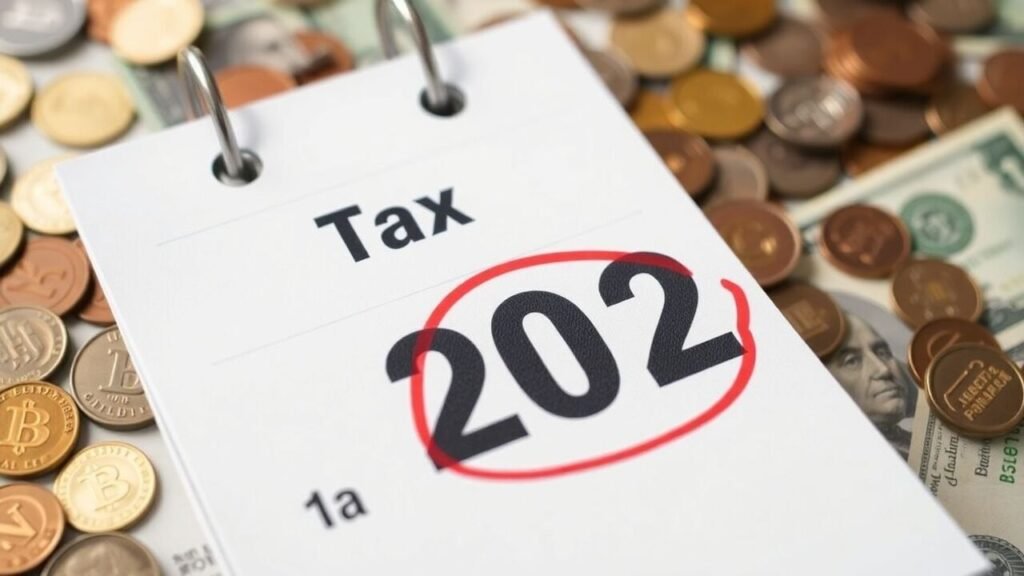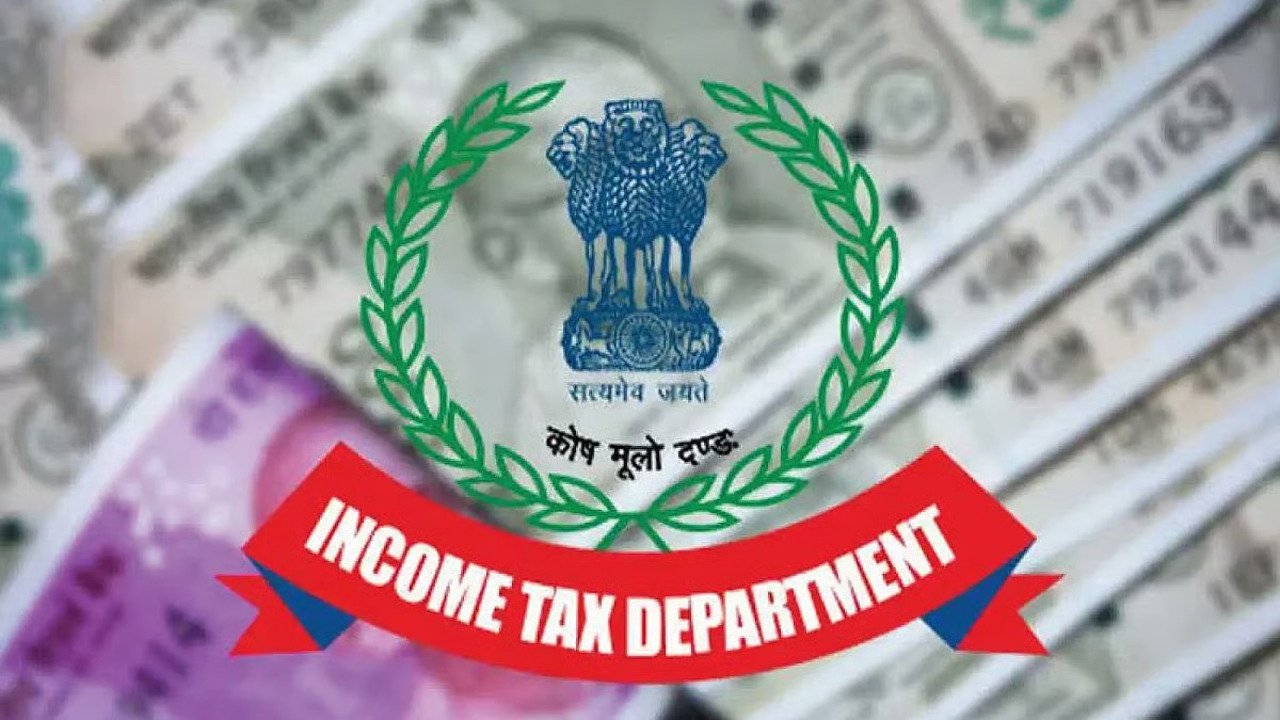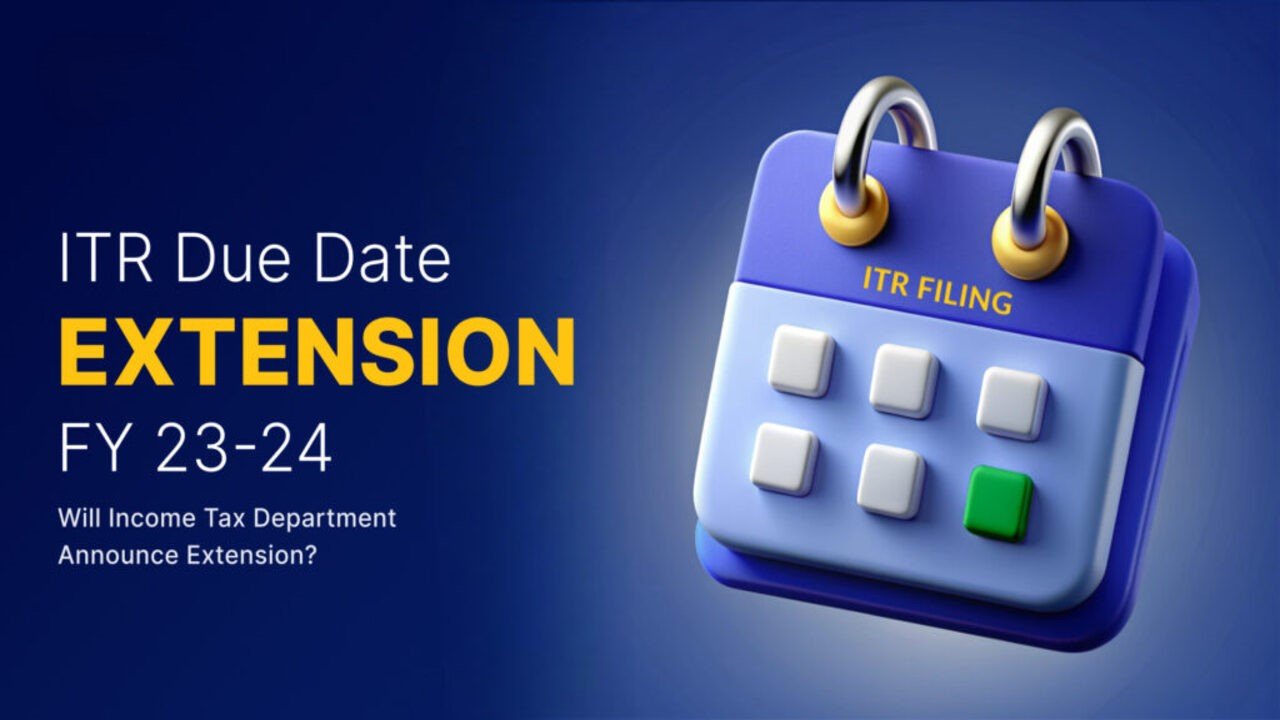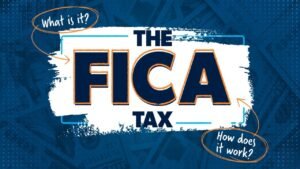Don’t Miss Out: 2025 Income Tax Return Due Date.
Getting your taxes done can feel like a chore, and honestly, who wants to think about it? But knowing the actual income tax return due date is pretty important if you want to avoid extra charges from the government. It’s not just about that one big day in April, either. There are other dates to keep in mind, especially if you’re self-employed or run a business. Let’s break down what you need to know so you don’t get caught off guard.
Thank you for reading this post, don't forget to subscribe!Key Takeaways
- The main income tax return due date for individuals is typically April 15th. If this date falls on a weekend or holiday, the deadline shifts to the next business day.
- Extensions to file are available, but they usually don’t extend the time to pay your taxes. You still need to estimate and pay what you owe by the original deadline to avoid penalties.
- Self-employed individuals and those with significant income not subject to withholding must pay estimated taxes quarterly. Missing these estimated tax deadlines can lead to underpayment penalties.
- Failing to file or pay by the deadlines can result in penalties and interest charges on the amount owed. These costs can add up quickly.
- Options like filing a belated return or an updated return exist if you miss the initial deadlines, but these often come with additional fees or limitations, like not being able to carry forward certain losses.
Understanding the Primary Income Tax Return Due Date
Income Tax Return Due Date Alright, let’s talk about the big one: when you actually have to get your income tax return filed. For most people in the U.S., this date is pretty well-known, but it’s easy to get confused, especially with extensions and other factors. The standard deadline for filing your federal income tax return is April 15th. This date applies to individuals and is the day by which you’re expected to submit your tax forms or have requested an extension.
The Crucial April 15th Deadline
So, April 15th. It’s the day that looms large for many of us. This is when the IRS expects to receive your completed tax return for the previous year. Think of it as the official end of the tax filing season for the majority of taxpayers. If you owe money, this is also the date by which your payment is due to avoid penalties and interest. It’s always a good idea to aim to file before this date, just in case you run into any last-minute snags.
Extensions for Filing Your Return
Life happens, right? Maybe you’re waiting on documents, or perhaps you’ve just gotten swamped with work. The good news is that the IRS understands this. Income Tax Return Due Date You can request an extension to file your return. This is typically done using Form 4868. Getting an extension gives you an extra six months to submit your paperwork, usually pushing the filing deadline to October 15th. However, and this is a big ‘however,’ an extension to file is not an extension to pay. You still need to estimate your tax liability and pay any amount you owe by the original April 15th deadline. Failing to do so means you’ll still face penalties and interest on the unpaid amount.
Impact of Weekends and Holidays
What if April 15th falls on a Saturday or a Sunday? Or maybe it’s a federal holiday? The IRS has a rule for this: if the deadline falls on a weekend or a holiday, it gets pushed to the next business day. Income Tax Return Due Date So, if April 15th is a Sunday, the deadline becomes Monday, April 16th (assuming Monday isn’t also a holiday). It’s always worth double-checking the calendar for the specific year to see if this applies to you. This little adjustment can sometimes give you an extra day or two, which can be a lifesaver if you’re cutting it close.
Navigating Estimated Tax Payment Deadlines
If you’re self-employed or have income that doesn’t have taxes taken out automatically, you’ll likely need to pay estimated taxes throughout the year. This isn’t just about filing your annual return; it’s about paying as you earn to avoid a surprise bill and potential penalties later on. Think of it as paying your taxes in installments, rather than all at once.
Quarterly Payments for Self-Employed
For most people who need to pay estimated taxes, the payments are broken down into four installments. The IRS sets specific dates for these payments, and missing them can lead to penalties. It’s important to remember that these payments are based on your estimated income for the entire year, not just the income earned in that specific quarter. If your income fluctuates, you might need to adjust your payments accordingly.
Key Dates for Estimated Taxes
Mark your calendars! Here are the typical due dates for estimated tax payments for the 2026 tax year. Remember, if a due date falls on a weekend or a holiday, the deadline shifts to the next business day.
- First Quarter: April 15, 2026 (for income earned Jan. 1 to March 31)
- Second Quarter: June 15, 2026 (for income earned April 1 to May 31)
- Third Quarter: September 15, 2026 (for income earned June 1 to August 31)
- Fourth Quarter: January 15, 2027 (for income earned Sept. 1 to Dec. 31)
Avoiding Underpayment Penalties
Paying your estimated taxes on time is the best way to steer clear of penalties. Generally, you can avoid an underpayment penalty if you owe less than $1,000 when you file your return, or if you paid at least 90% of the tax you owe for the current year, or 100% of the tax shown on the return for the prior year (that’s 110% if your adjusted gross income was more than $150,000, or $75,000 if married filing separately).
If you miss a payment deadline, the IRS might charge a penalty. This penalty is usually a percentage of the unpaid tax for the number of days the tax remains unpaid. Interest also accrues on underpayments and penalties, so it’s always best to pay what you owe as soon as possible, even if it’s late.
Filing an extension to submit your tax return does not extend the time to pay your taxes. You still need to estimate and pay your tax liability by the original April 15 deadline to avoid penalties and interest.
Key Tax Filing Dates for the 2026 Tax Year
The Official Start of Tax Season
While you can technically start gathering your tax documents and even file your return as soon as the IRS begins accepting them, the official tax season for the 2026 tax year typically kicks off in late January. This is when the IRS starts processing the tax returns that have been submitted. So, if you’re eager to get a head start, aim to have your paperwork organized and ready to go by then.
Individual Income Tax Return Deadline
The big one everyone remembers is April 15th. This is the standard deadline for filing your federal income tax return for the 2025 tax year. Income Tax Return Due Date If you owe taxes, this is also the date by which your payment is generally due to avoid penalties and interest. It’s always a good idea to file before this date, even if you need to request an extension.
Extended Filing Deadline for Taxpayers
Life happens, and sometimes you just can’t get your return filed by the April 15th deadline. Fortunately, the IRS allows you to request an extension. Filing an extension, typically done using Form 4868, gives you an additional six months to submit your return. This means the extended deadline for filing your 2025 tax return will be October 15, 2026. Remember, though, an extension to file is not an extension to pay. You still need to estimate and pay any taxes you owe by the original April 15th deadline to avoid penalties.
Here’s a quick look at the main dates:
- January 2026: Tax season officially begins, and the IRS starts accepting returns.
- April 15, 2026: Deadline for filing your 2025 individual income tax return and paying any taxes owed.
- April 15, 2026: Deadline to request an extension to file.
- October 15, 2026: Extended deadline to file your 2025 individual income tax return.
It’s really important to remember that these dates can shift if they fall on a weekend or a federal holiday. The IRS will then move the deadline to the next business day. Always double-check the calendar for the specific year.
Consequences of Missing Tax Deadlines

So, you missed the big tax deadline. It happens, right? But what exactly does that mean for your wallet? Well, it’s not ideal, and the IRS isn’t exactly known for its leniency when it comes to missed deadlines.
Understanding Late Filing Penalties
If you owe taxes and don’t file on time, you’ll likely face a penalty. This penalty is usually a percentage of the unpaid taxes for each month or part of a month that your return is late. The penalty for failing to file is generally 5% of the unpaid taxes for each month or part of a month that a tax return is late, up to a maximum of 25%. There’s also a penalty for failing to pay, which is typically 0.5% of the unpaid taxes for each month or part of a month, also capped at 25%. If both penalties apply in the same month, the combined penalty is generally limited to 5% per month. Income Tax Return Due Date It’s important to remember that if your return is more than 60 days late, the minimum penalty for failure to file is the smaller of $485 (for returns due in 2025) or 100% of the unpaid tax.
Interest Charges on Unpaid Taxes
On top of penalties, the IRS also charges interest on underpayments. This interest applies to both unpaid taxes and any penalties you owe. The interest rate can change quarterly, and it’s compounded daily. So, that small amount you owe can grow pretty quickly if you let it sit unpaid for too long. It’s like a snowball rolling downhill – it just keeps getting bigger.
Loss of Carry-Forward Benefits
Missing deadlines can also affect future tax years. For instance, if you’re due a refund and don’t file, you can’t get that money back. The IRS generally gives you three years from the original due date to claim a refund. If you miss that window, the money is forfeited. Similarly, certain tax credits or deductions might have carry-forward provisions. If you don’t file your return, you might lose the ability to carry those benefits forward to future tax years, which could mean a smaller tax break down the line. It’s always best to file, even if you can’t pay right away, to preserve these potential benefits. You can explore options for payment plans if you’re struggling to pay what you owe. Learn about payment options.
It’s a good idea to file your taxes on time, even if you can’t pay the full amount. Filing an extension can give you more time to submit your paperwork, but you still need to pay any estimated taxes owed by the original deadline to avoid penalties and interest. If you’re unsure about your specific situation, consulting with a tax professional is always a wise move.
Special Considerations for Taxpayers

Deadlines for Partnerships and Corporations
While many individuals focus on the April 15th deadline, it’s important to remember that different business structures have their own filing schedules. Partnerships and S-corporations, for instance, typically file their informational returns (Forms 1065 and 1120-S, respectively) by March 15th. This is because these entities pass income, deductions, and credits through to their owners, who then report them on their individual returns. Income Tax Return Due Date Missing this earlier deadline can affect the timely filing for the owners of these businesses. C-corporations, on the other hand, generally have a later deadline, usually the 15th day of the fourth month after the end of their tax year, which for most is April 15th as well, but it’s always good to double-check your specific fiscal year end.
Retirement Contribution Deadlines
When it comes to saving for retirement, timing is everything. For the 2025 tax year, you generally have until April 15, 2026, to make contributions to your traditional or Roth IRA. This deadline applies to contributions for the entire previous tax year. So, if you’re looking to boost your retirement savings and get a potential tax deduction or benefit for 2025, make sure those contributions are in by this date. It’s a great way to potentially lower your current tax bill while building future security.
Disaster Relief Extensions
Sometimes, life throws curveballs, and major natural disasters can disrupt normal life, including tax filing. The IRS often provides special relief to taxpayers in declared disaster areas. This can mean automatic extensions to file and pay taxes, giving people affected by these events more time to get their affairs in order. Income Tax Return Due Date These extensions are usually announced by the IRS and can push deadlines back by several months. It’s wise to check the IRS website or your state’s tax authority for any disaster-related announcements that might apply to you if you live in an affected region.
It’s easy to get caught up in the main tax deadline, but remember that business entities and retirement savings have their own specific dates. Staying aware of these can prevent unexpected penalties and ensure you’re taking full advantage of tax benefits.
Options for Late Filers
So, you missed the big April 15th deadline, or maybe even the October 15th extension deadline. Don’t panic just yet! The IRS understands that life happens, and they do offer a couple of ways to get your taxes sorted, even if you’re late. It’s always better to file something than nothing at all.
Filing a Belated Income Tax Return
If you’ve missed the original deadline and the extended deadline, you can still file what’s called a “belated” tax return. Think of it as a second chance. You can file this return at any time after the due date. However, there are a couple of important things to remember. Income Tax Return Due Date First off, if you owe taxes, you’ll likely face penalties for filing late, plus interest on the unpaid amount. The penalty is usually a percentage of the unpaid taxes for each month or part of a month that the return is late, up to a maximum percentage. Also, and this is a big one, you generally can’t carry forward certain tax losses, like business or capital losses, if you file a belated return. This means you might miss out on tax breaks in future years.
The Updated Return Option
For those who have already filed a tax return but later discover they made a mistake or forgot to report some income, there’s the option to file an amended return. If you discover an error after the original due date, you can file an amended return (Form 1040-X) to correct it. This is different from a belated return, which is for when you didn’t file at all. If you owe more tax, you should file the amended return as soon as possible to minimize penalties and interest. If you’re due a refund, you generally have three years from the date you filed your original return or two years from the date you paid the tax, whichever is later, to claim it.
When to File an Updated Return
An amended return is your go-to if you’ve already filed but need to make changes. Maybe you forgot to include a 1099 form, or perhaps you realized you qualified for a deduction you didn’t claim. The key is to file it as soon as you realize the mistake. The sooner you correct the error, the less you’ll owe in potential penalties and interest if you underpaid. It’s a good practice to keep copies of all your tax documents and review them carefully before filing your initial return to avoid needing to amend later. If you’re unsure about whether to file an amended return or how to do it, consulting a tax professional is always a smart move.
Here’s a quick look at what happens when you file late:
- Late Filing Penalty: A percentage of the unpaid tax for each month the return is late.
- Interest: Charged on underpaid taxes from the due date until the date of payment.
- Loss of Carry-Forward Benefits: You might not be able to carry forward certain tax losses to future years.
Don’t Get Caught Off Guard: Final Thoughts on Tax Deadlines
So, we’ve gone over all the important dates for filing your 2026 income tax return. It might seem like a lot to remember, but honestly, staying on top of these deadlines is way better than dealing with penalties later. Think of it like this: getting your taxes done on time means fewer headaches and maybe even a refund sooner. If you’re self-employed, those quarterly payments are key, and for everyone else, that April 15th date is the big one. Income Tax Return Due Date Remember, even if you miss a deadline, there are usually ways to fix it, but it often costs more. So, get organized, put those dates in your calendar, and try to file before the last minute. It really does make a difference.
Frequently Asked Questions
When is the main deadline to file my income taxes?
For most people, the big day to get your tax return to the government is April 15th. If this date falls on a weekend or a holiday, the deadline moves to the next business day.
What if I need more time to file my taxes?
No worries! You can ask for an extension. This usually gives you an extra six months to file your paperwork. But remember, you still need to pay any taxes you think you owe by the original April 15th deadline to avoid extra charges.
What happens if I miss the tax deadline?
If you owe money and file late, you might have to pay a penalty and interest on the amount you owe. It’s always best to file on time or get an extension. If you can’t pay right away, it’s still important to file your return to avoid bigger penalties.
Do I have to pay taxes throughout the year if I’m self-employed?
Yes, if you’re self-employed or have income not taxed through your job, you usually need to pay estimated taxes four times a year. These payments are spread out, with deadlines typically in April, June, September, and January of the next year.
Can I still file my taxes even if I missed the deadline?
Yes, you can usually file a ‘belated’ tax return after the deadline. However, there might be penalties and interest on any unpaid taxes. Also, filing late can stop you from carrying forward certain tax losses to future years.
What are the deadlines for businesses like partnerships or corporations?
Businesses have different deadlines. Partnerships and S-corporations typically need to file by March 15th, while C-corporations usually have until April 15th. It’s always good to check the specific rules for your business type.













